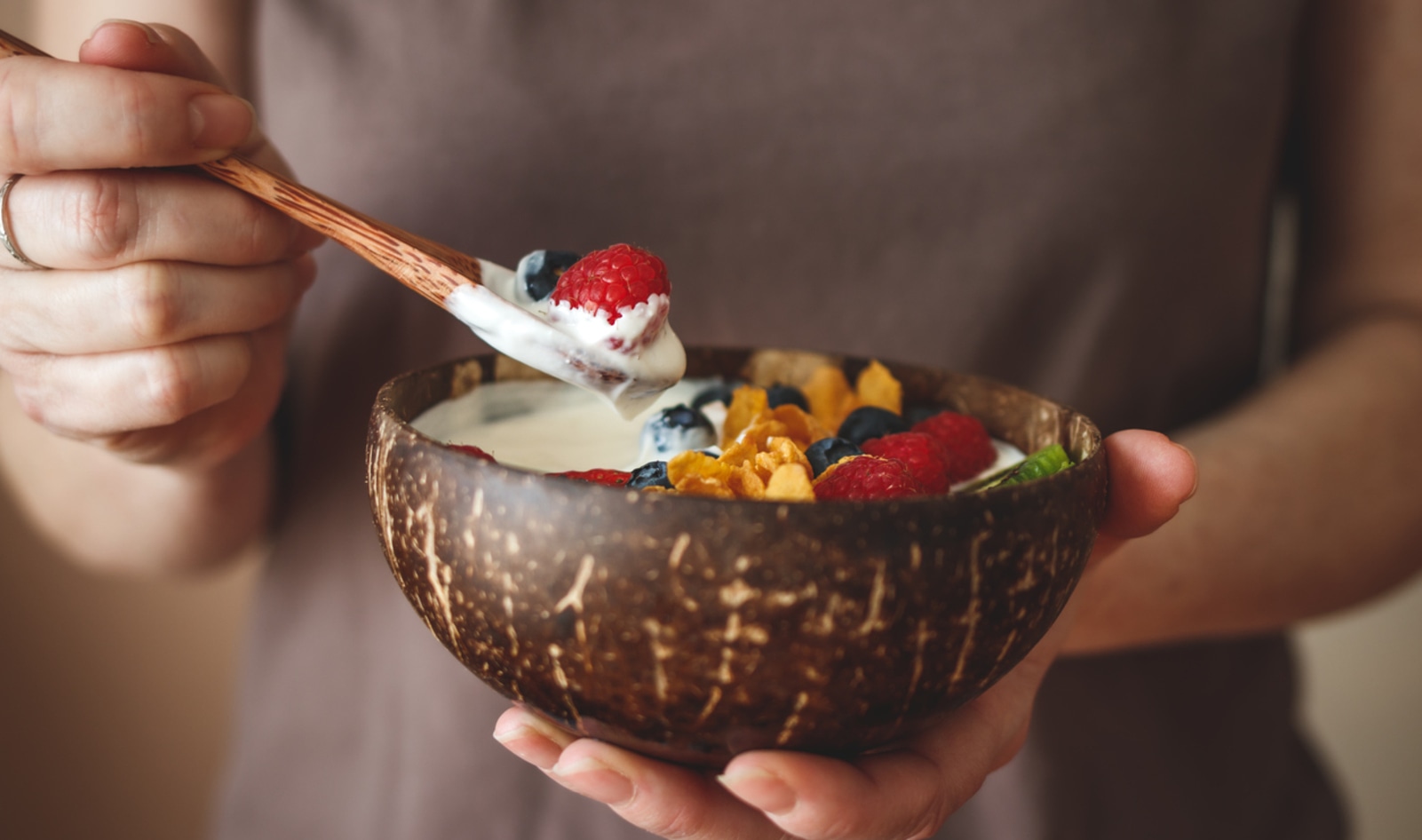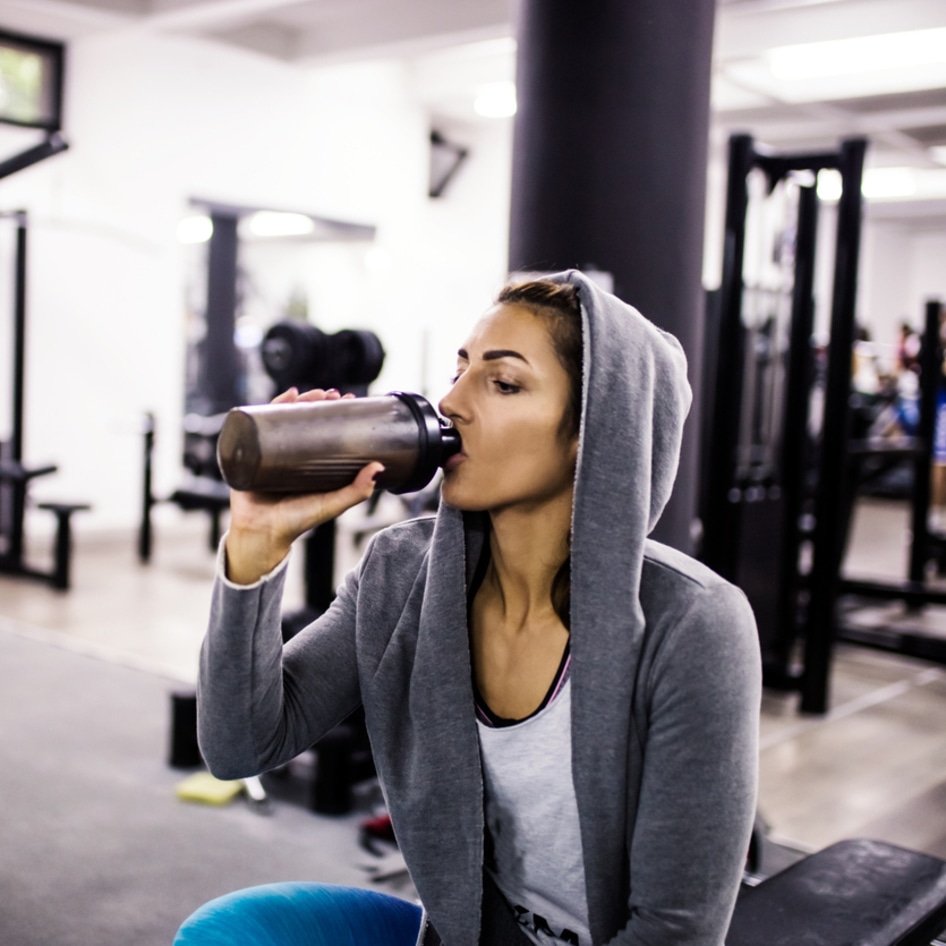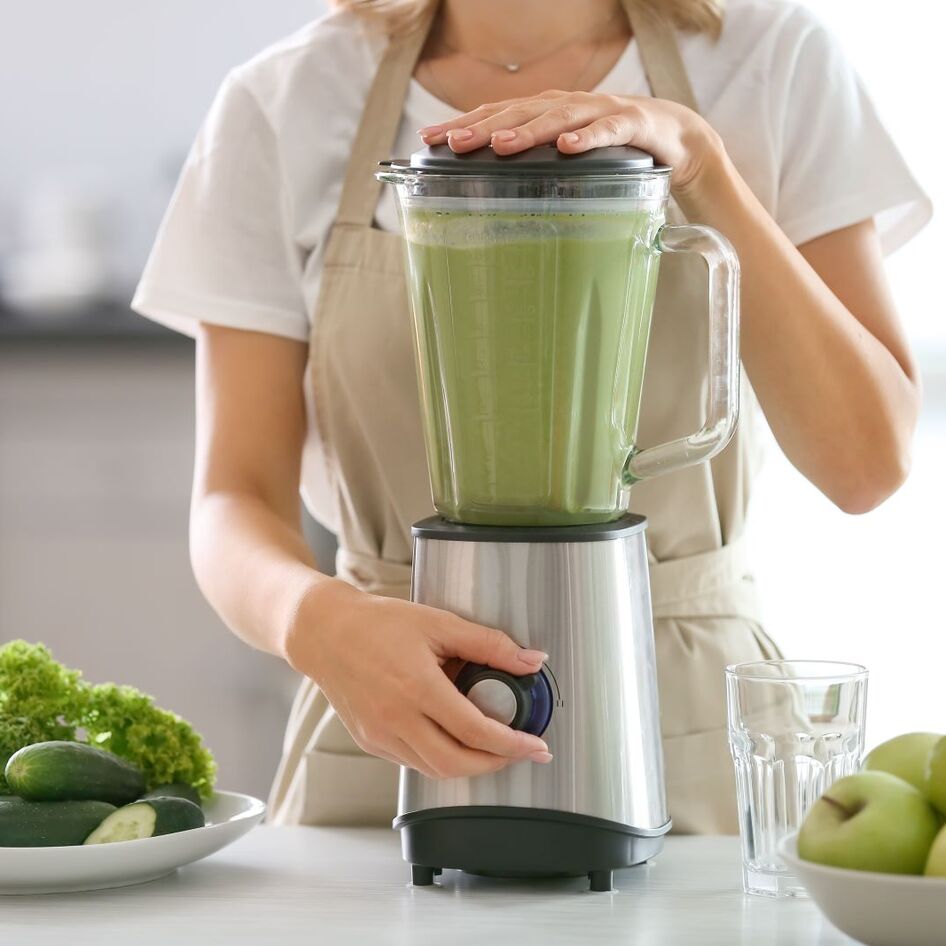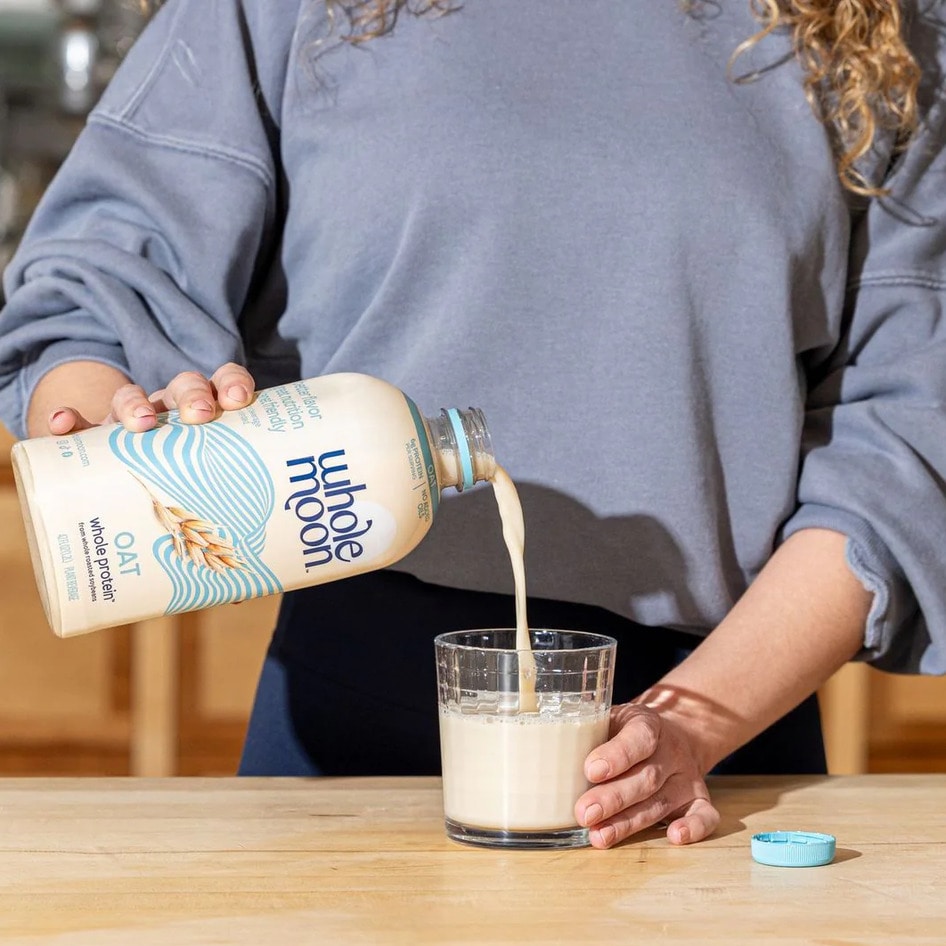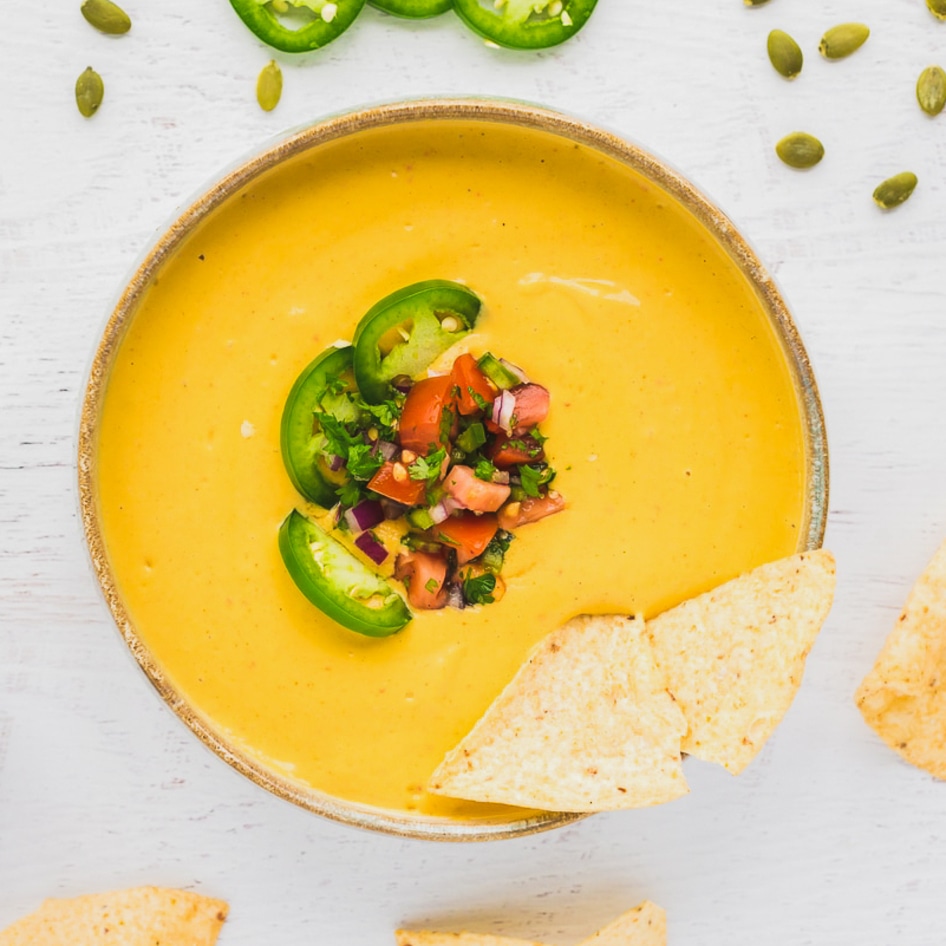Roughly 10,000 years ago, humans started the process of domesticating plants and animals for food. Back then, options were pretty limited, and we only had the resources that were directly in front of us. So it made a lot of sense to farm animals like goats and chickens, as they could easily provide us with sustenance in the form of milk and eggs.
Over the centuries, domestication gave way to a food system that rests predominantly on animal agriculture. Now, we raise not just goats and chickens, but cows, sheep, turkeys, and pigs in their millions to produce meat, dairy, and eggs for the world. But the truth is, what made sense thousands of years ago just doesn’t make sense anymore. To put it simply, raising all of these animals just isn’t sustainable.
For starters, the livestock industry takes up huge amounts of resources, like land, water, and crops. And it’s also a leading cause of emissions. Animal agriculture contributes 14.5 percent of global greenhouse gasses, according to the United Nations. It’s not surprising. Just one cow will belch around 220 pounds of methane, a potent greenhouse gas, into the atmosphere over their lifetime. Right now, the global cattle population stands at one billion. You do the math.
For the benefit of the planet, and indeed, the future of humanity, it’s time to change the way we produce food. And, if we embrace new research and innovation, doing so is within reach. A new technology called precision fermentation is already emerging, and it could be the answer to a truly sustainable food system. Here’s more about what it is, how it works, and which brands are using it today.
The history of precision fermentation
Precision fermentation sounds futuristic and unfamiliar, but it’s actually not new at all. In fact, it has been used in the pharmaceutical industry for quite a while now.
According to Reboot Food—a campaign dedicated to precision fermentation awareness and the cultivation of a sustainable food system—prior to the 1970s, most insulin (a hormone medication used to treat people with diabetes) was sourced from animal agriculture. But this method was challenging and unsustainable, as producing just one kilogram of insulin required around 50,000 cows and pigs.
But, in the late 1970s, a pharmaceutical company called Genentech changed the game for insulin, by using precision fermentation to create human insulin. It wasn’t just more sustainable, but it was also cheaper and higher in quality. Today, pig and cow insulin is quite rare in the pharmaceutical world, as insulin made with precision fermentation accounts for around 99 percent of the market.
But precision fermentation’s roots go even further back than the 1970s. Ultimately, it’s a refined form of brewing. And humans have been brewing beer, which is created by fermentation with yeast, for centuries.
“Yeast, bacteria, and even microalgaes have been used in our food systems for thousands of years and have been used in pharmaceutical manufacturing for the past century,” Adam Leman, Ph.D—the lead scientist in fermentation at the Good Food Institute, a nonprofit that promotes alternative protein development—explained to VegNews. “Precision Fermentation is using these microbes to make an ingredient for food.”
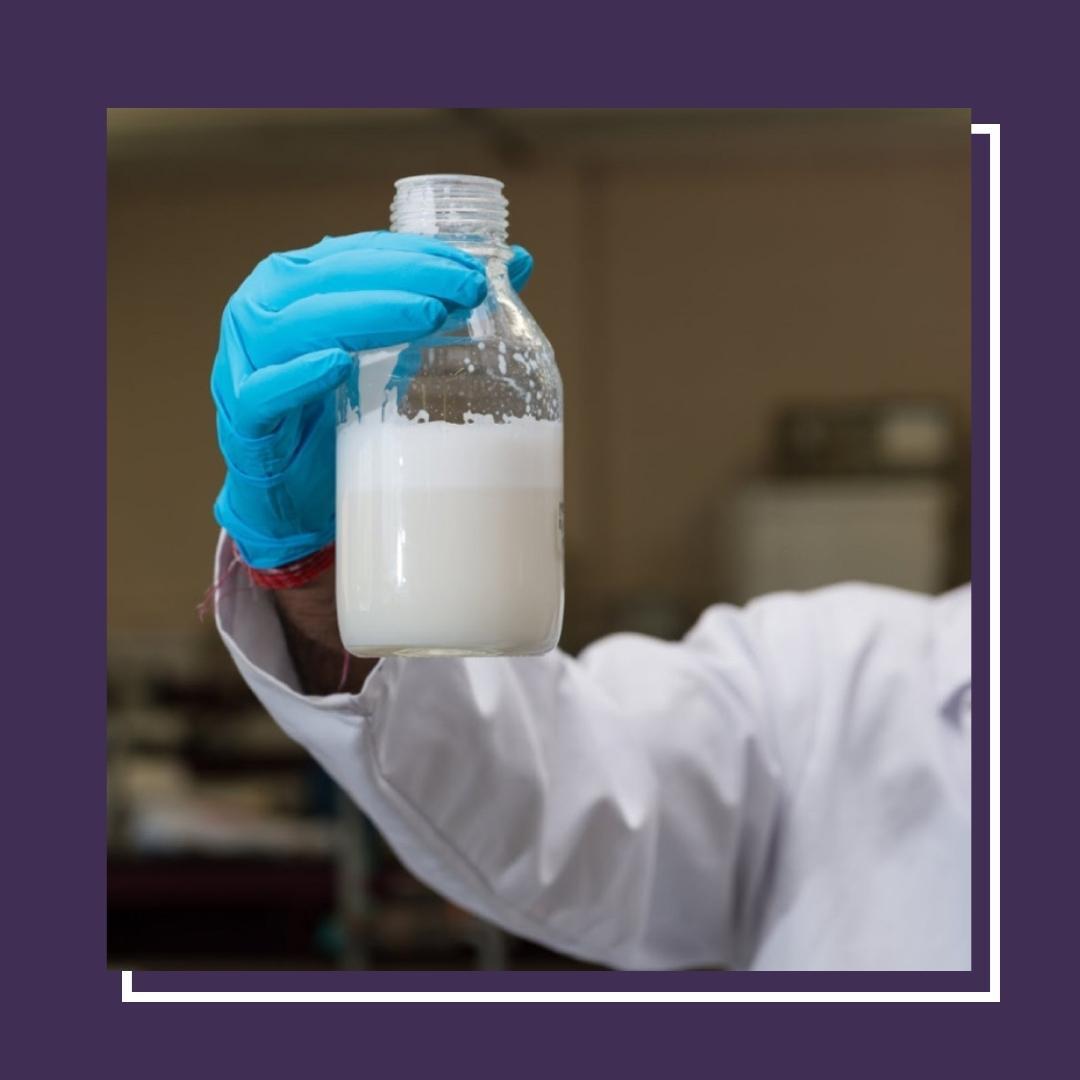 Perfect Day/Instagram
Perfect Day/Instagram
What is precision fermentation?
According to Leman, precision fermentation in food production involves using microbes to make protein, fat, a pigment, or even a molecule for flavor or aroma. “That ingredient could be something that the microbe already makes, which we see for some flavor molecules and pigments,” he says.
“Or it could be something that the microbe has been designed to do,” continues Leman. “In other words, where the genetic code for a food ingredient protein or the enzymes that make the ingredient are introduced to the microbe.”
The latter method is used by California-based food technology startup Perfect Day, which relies on precision fermentation to make animal-free, milk-identical whey protein.
“We first give microflora the genetic instructions for making whey protein, downloaded from an online database,” Nicki Briggs, Perfect Day’s vice president of corporate communications, explains to VegNews. After that, the microflora ferments in a feedstock, or nutrient mix, which consists of sugar, water, and vitamins. “Imagine a brewery,” says Briggs. “But instead of brewing beer, we’re ‘brewing’ milk protein.”
Then, Perfect Day uses “gold-standard” technology from the dairy industry to filter the milk protein. But unlike a dairy company, the brand is left with whey protein that didn’t require any animals to make. “[But it’s still] identical to the dairy protein that’s been consumed for generations,” notes Briggs.
Why should we embrace this technology?
Just like we moved away from animal agriculture and embraced precision fermentation for insulin production, we can do the same for food. And we must, believes George Monbiot, who is an environmentalist and spokesperson for the Reboot Food campaign. “If livestock production is replaced by this technology, it creates what could be the last major opportunity to prevent Earth systems collapse, namely ecological restoration on a massive scale,” he wrote for the Guardian in November 2022.
Leman agrees that precision fermentation brings with it a whole host of planetary benefits. It requires fewer resources, produces less waste, and doesn’t need as much land, as there is no livestock to graze. But on top of that, it is also better for public health. After all, zoonotic diseases, which are diseases that jump the species barrier from animals to humans, are a real pandemic threat.
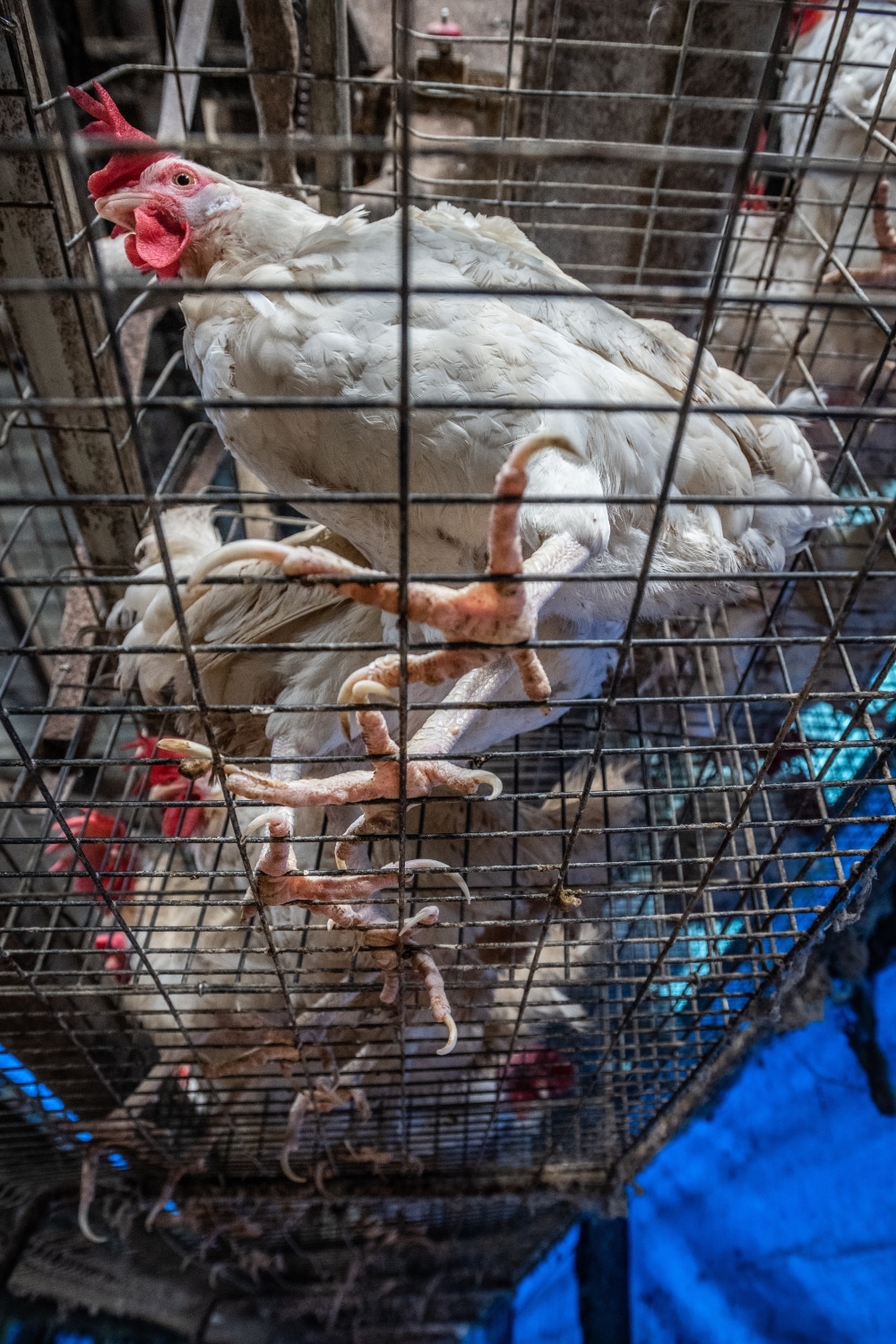 Unsplash
Unsplash
“Precision fermentation allows for a truly no-compromise option in our future food system,” adds Briggs. “Because it’s identical to traditional dairy protein, our animal-free protein allows for products which offer the taste, texture, functionality, and nutrition consumers love from dairy without lactose, and with a significant reduction in environmental footprint.”
But beyond these positives, precision fermentation is also exciting from the point of view that it opens up new possibilities in the world of food science. “Traditional food systems were established with animals that were easy to domesticate, not because they produced the most nutritious or flavorful foodstuffs,” says Leman. “Doing this using precision fermentation without the animal opens up doors that weren’t previously possible to open and explore.”
Who’s using precision fermentation now?
Perhaps the most famous example of a brand already utilizing precision fermentation to encourage consumers to try more plant-based foods is Impossible Foods. The California-based vegan meat company used the technology to improve the taste and texture of its plant-based protein with its own leghemoglobin protein.
And, in 2021, The Every Company, another California-based biotechnology firm, landed $175 million to continue with its research into animal-free protein made using precision fermentation technology. Right now, it is particularly focused on making egg whites, without the eggs. “The role of egg white protein in food products is so vast,” says Leman. “I’m excited to see where it will be used.”
In dairy, things are getting exciting. As we’ll delve into shortly, there are already products on the market made with Perfect Day’s animal-free whey. And Singapore biotech company TurtleTree is also working on the milk protein Lactoferrin. Several companies are also working on creating casein, which is important for cheesemaking, with precision fermentation.
Outside of animal products, companies like New York’s C16 Biosciences have also created a precision fermentation version of palm oil, which is another infamously unsustainable industry. “We are in the midst of a rapid increase and diversification of precision fermentation products,” says Leman.
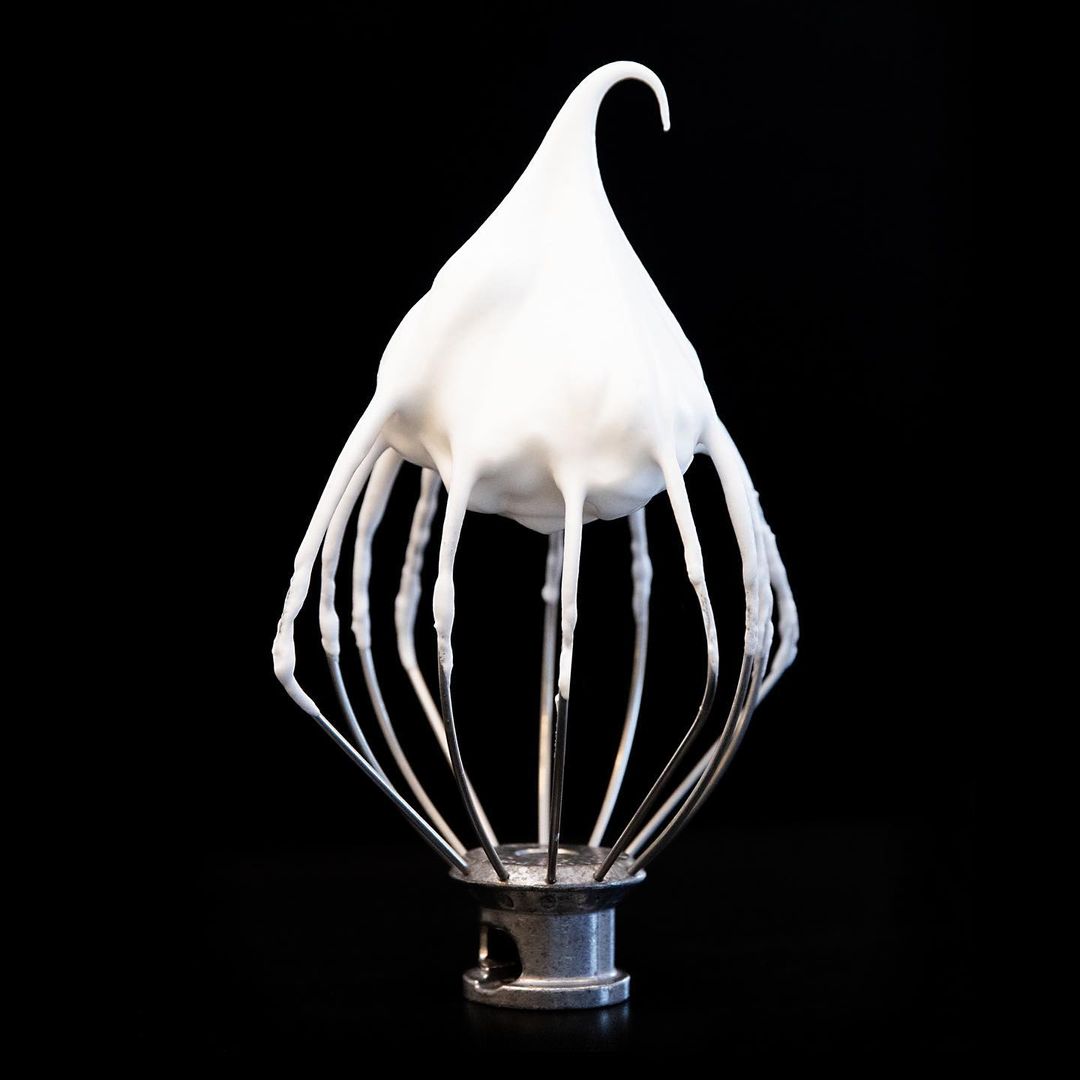 The Every Company
The Every Company
Is precision fermentation dairy safe?
There’s no doubt, precision fermentation is exciting. It’s innovative, sustainable, and scalable. But none of this matters if it isn’t actually safe to consume. But if this was one of your worries, you can strike it off the list, says Leman, because, he says, safety is “paramount” to the growth of this industry.
“First, all the facilities that generate precision fermentation ingredients are designed and maintained to be food-safe and follow procedures to keep them clean and free of toxins and contaminants,” he explains. “Next, as for the microbes and ingredients themselves, they are scrutinized and evaluated closely by a process of evaluation called the “Generally Recognized as Safe” affirmation process.” The latter essentially means that the FDA’s qualified experts have affirmed that an ingredient has been shown as safe for its intended use.
Briggs adds that safety shouldn’t be a concern for consumers when it comes to precision fermentation and that people should “feel confident” consuming Perfect Day’s products. “We are regulated by the FDA,” she confirms. “We were recognized as Generally Recognized as Safe before bringing any products to market.”
What if I have a dairy allergy?
It’s important to note that while Perfect Day’s products are safe for most people—if you have a dairy allergy, you should avoid them. After all, its whey protein might be animal-free, but it is designed to be identical to the real thing. And while it is working on how the allergenicity of this protein can be reduced, it isn’t there yet.
“For individuals with a milk allergy, we need to be clear: Perfect Day makes milk protein,” reads the Perfect Day website. “Though not derived from a cow, our protein is not dairy–free and any product that contains it contains a milk allergen. These products are not suitable for anyone with a milk protein allergy.”
Precision fermentation dairy products
The world of precision fermentation dairy is exciting. Already, you can sample several products on the market that contain Perfect Day’s animal-free whey. From ice cream to cream cheese, here’s what you can put to the taste test right now. But keeps your eyes peeled: there are more coming, in the form of chocolate, milk, and more.
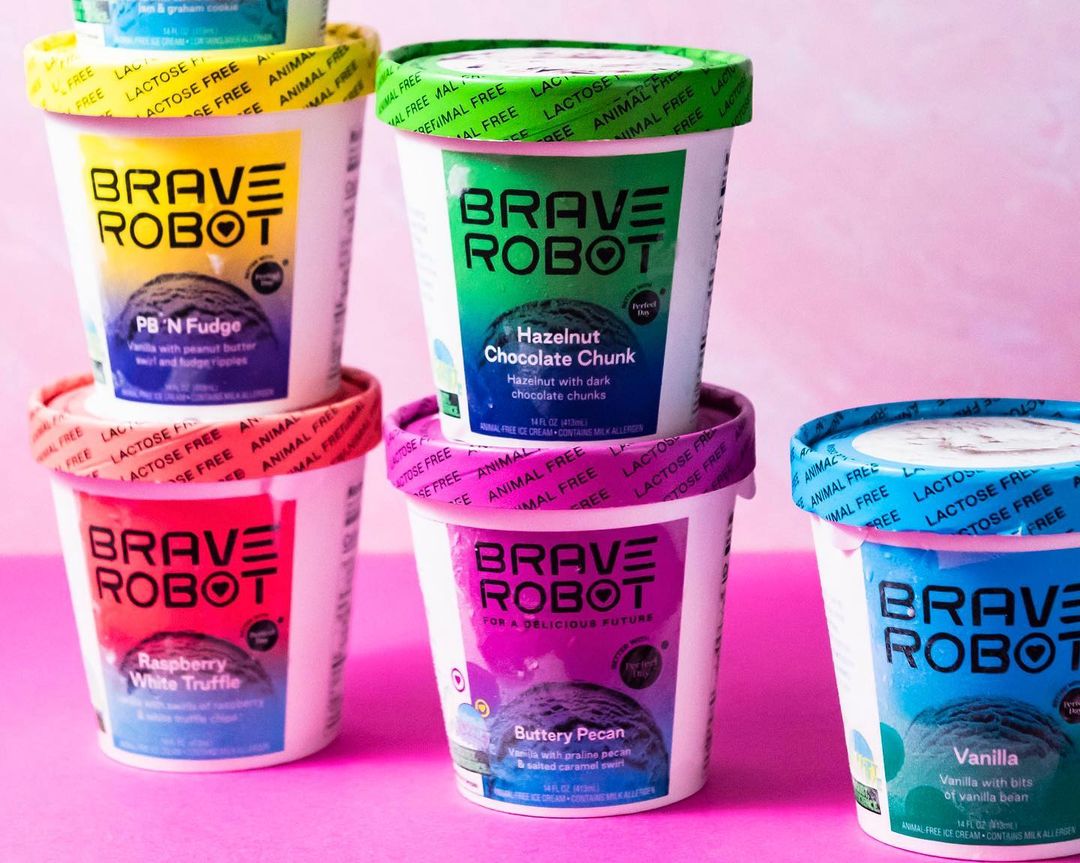 Brave Robot/Instagram
Brave Robot/Instagram
1 Brave Robot
According to Brave Robot, its “planet-friendly” animal-free ice cream uses 23 percent less water than conventional dairy and produces 72-percent fewer emissions. It’s all just as creamy as the real deal, and as a bonus, it’s lactose-free, so even lactose intolerant people can enjoy its wide range of flavors, which include Vanilla, Buttery Pecan, Blueberry Pie, PB ‘N Fudge, and Hazelnut Chocolate Chunk.
Check it out
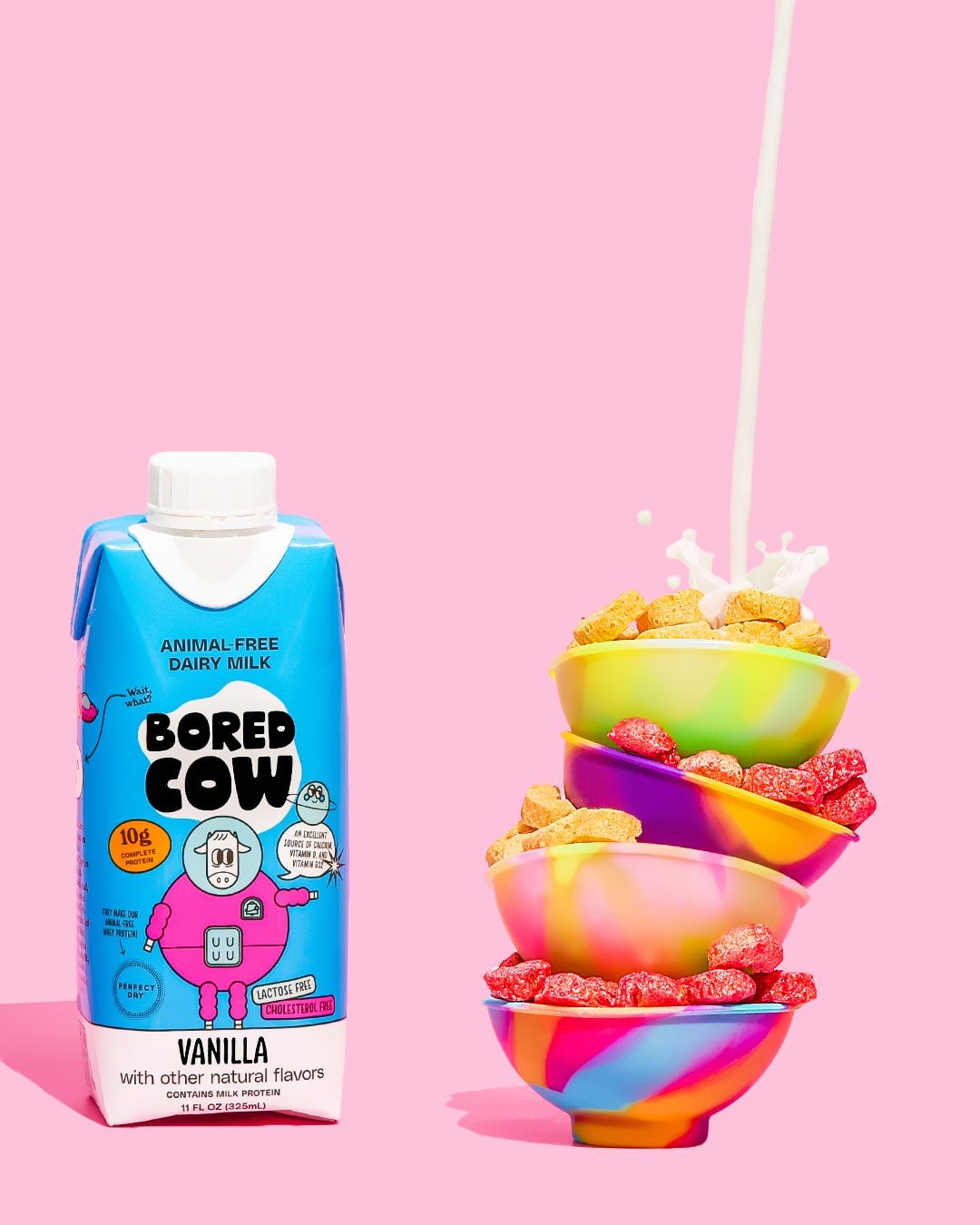 Bored Cow/Instagram
Bored Cow/Instagram
2 Bored Cow
The plant-based milk market is flourishing. If you want milk made from oat, almond, hemp, soy, or macadamia nuts, for example, it’s easy to find. But this milk isn’t in that category. Thanks to Perfect Day’s animal-free whey, these milkshakes are just like the versions made with real cow’s milk, only without the cow. You can try it in Vanilla, Chocolate, or Strawberry flavors.
Check it out
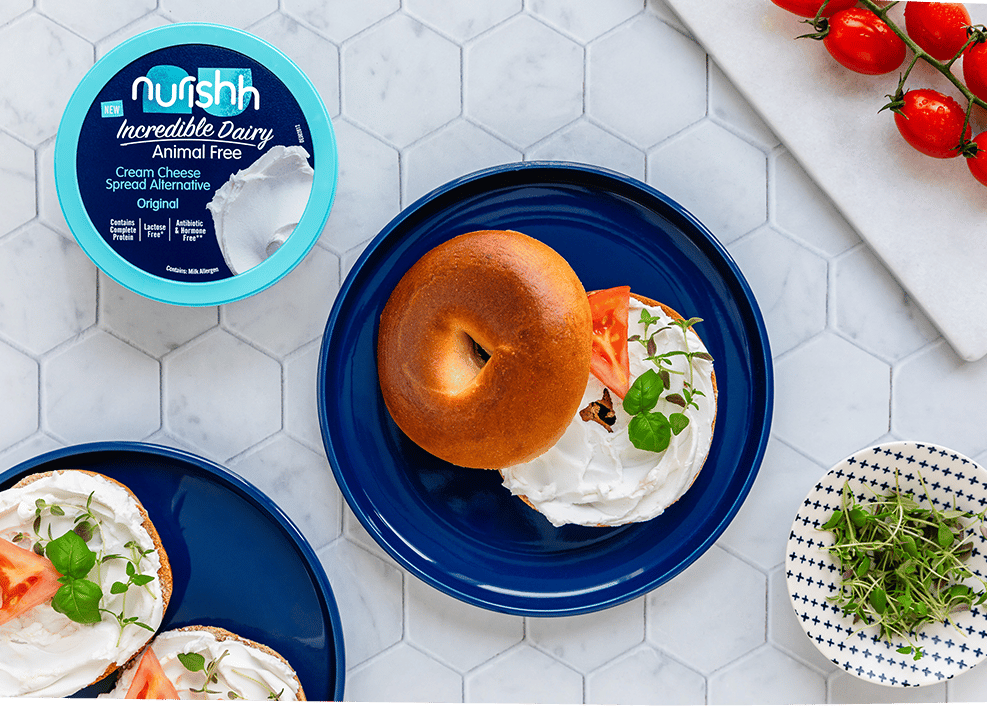 Nurishh
Nurishh
3 Nurishh Incredible Dairy
Nurishh is already known for its wide range of tasty, nutritious plant-based cheeses. But with its Incredible Dairy range, it has taken cream cheese, specifically, to the next level, using Perfect Day’s animal-free whey. If you want to put it to the bagel test, there are three varieties to try: Original, Chive & Onion, and Strawberry.
Check it out
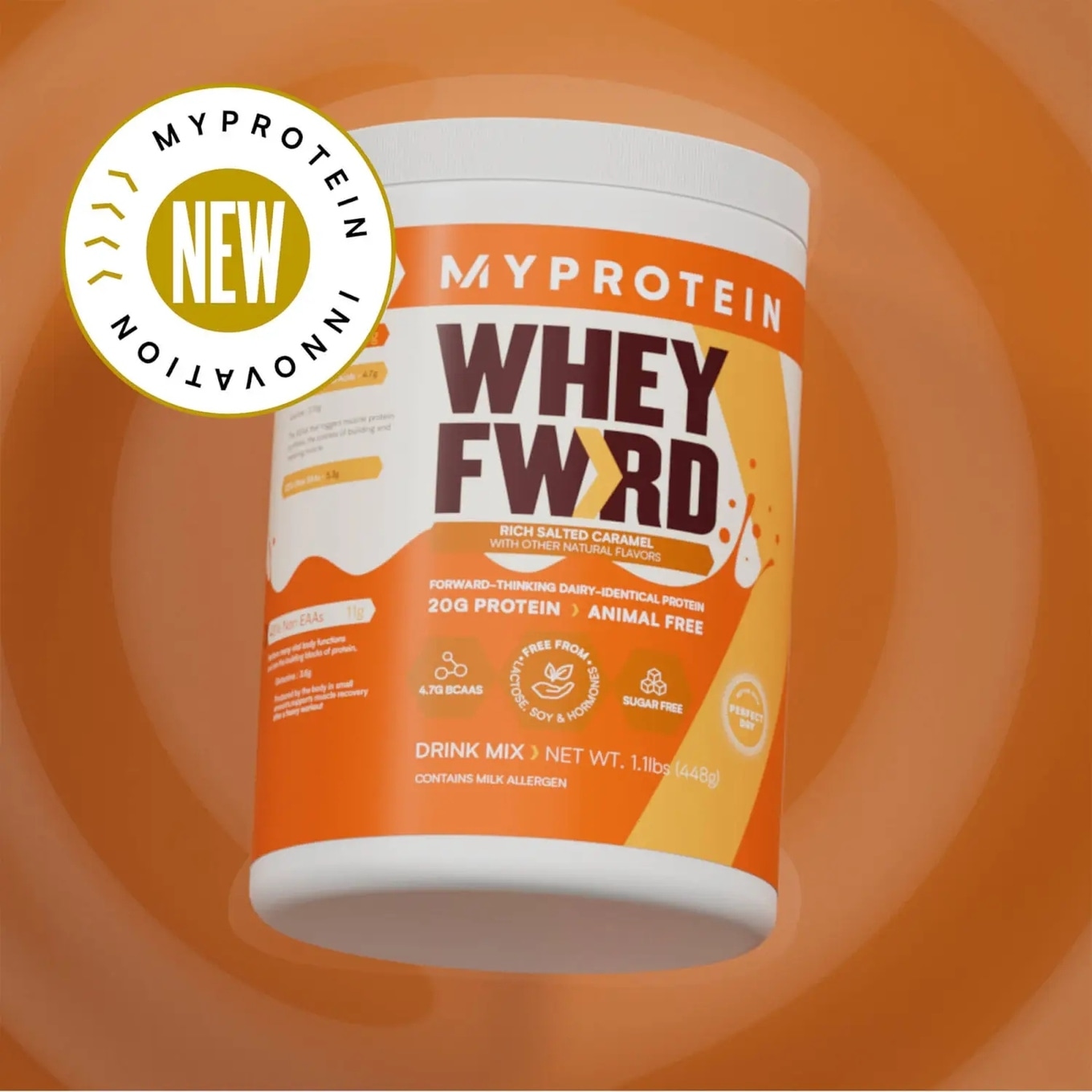 MyProtein
MyProtein
4 Whey Forward
If you’re working on your fitness and you want to stock up on protein, sure, you could choose one of the many standard whey protein powder options on the market. But this isn’t one of them. This game-changing powder has the same texture, taste, and has 20 grams of protein, but it’s totally animal-free.
Check it out
For more on precision fermentation, read:
JUMP TO ... Latest News | Recipes | Guides | Health | Subscribe

